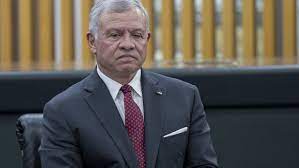APA – Kigali (Rwanda) – King Abdullah II Ibn Al-Hussein of the Hashemite Kingdom of Jordan on Monday, visited the Kigali Genocide Memorial in Gisozi where he paid tribute to victims of the 1994 genocide against the Tutsis.
The visiting King Abdullah II Ibn Al-Hussein arrived at Kigali International Airport on Sunday.
At the genocide museum, he laid a wreath at the burial place where 250,000 victims of the genocide are laid to rest and observed a minute of silence in their honour.
Guided through the museum, King Abdullah II Ibn Al-Hussein had also an opportunity to learn more about the history of the genocide, from the colonial roots of ethnic division through to the horrors of the killings, and gain insights on Rwanda’s journey to foster a shared sense of national identity.
The visit by King Abdullah II of Jordan also covers bilateral ties and means of expanding cooperation across various sectors, in addition to developments in the region.
The Jordanian king was received by a guard of honour at Urugwiro Village before heading into a tête-à-tête discussion with President Kagame, followed by bilateral talks together with their respective delegations.
“At the conclusion of the bilateral talks, various agreements and memoranda of understanding will be signed including an agreement between the Government of the Republic of Rwanda and the Government of the Hashemite Kingdom of Jordan for the elimination of double taxation with respect to taxes on income and the prevention of tax evasion and avoidance,” a statement from the Office of the President said.
“The Government of Rwanda and the Hashemite Kingdom of Jordan enjoy commendable bilateral relations. In 2022, President Kagame visited the Hashemite Kingdom of Jordan where he held talks with His Majesty King Abdullah II. The two leaders discussed common and global challenges and ways to enhance cooperation in various fields,” the statement added.
Rwanda and the Hashemite kingdom of Jordan cooperate in the fight against terrorism through direct communication or under the umbrella of the Aqaba Process.
The areas of cooperation also include political consultations, higher education, health and medical sciences, defence and security, and air services.
CU/as/APA


